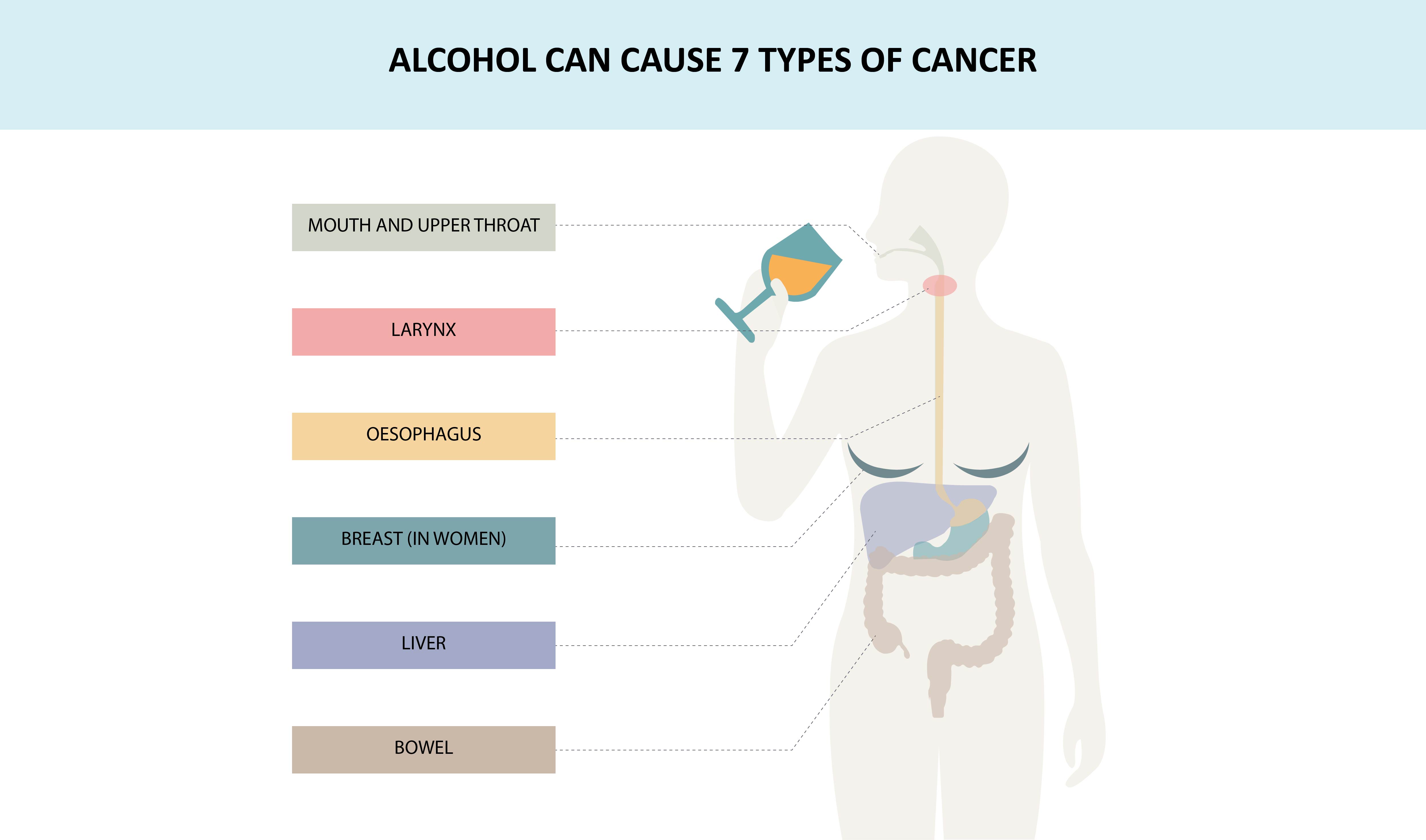
Published on October 25, 2023
Read Time: 3 Minutes
Three Things to Know
- Alcohol has been linked to breast, colorectal, esophagus, liver, mouth, throat and larynx cancers.
- Alcohol can damage the DNA in your cells and prevent the body from repairing the cells, which can lead to cells growing out of control.
- The best way to reduce your risk of cancer is not to drink alcohol at all.
Before you pour yourself a glass of wine or grab a beer out of the fridge, you may want to think twice.
The more alcohol you drink, the higher your risk for cancer. In fact, alcohol use accounts for about 6% of all cancers and about 4% of all cancer deaths in the US, according to the American Cancer Society (ACS).
Alcohol has been linked to the following types of cancer:
- Breast
- Colon and rectum
- Esophagus
- Liver
- Mouth, throat and larynx (voice box)
In addition, some studies show that drinking alcohol increases your risk for prostate cancer and consuming three or more alcoholic drinks per day raises your risk of stomach and pancreatic cancer.
So, why does drinking alcohol increase your risk for cancer? Here’s seven sobering facts about alcohol and cancer:
- Once you consume alcohol, your body converts alcohol into a chemical called acetaldehyde. This chemical can damage the DNA inside your cells and prevents your body from repairing the cells. When the DNA becomes damaged, a cell can begin growing out of control and develop into a cancerous tumor.
- The amount of alcohol you drink over time – not the type of alcohol (beer, wine, hard liquor, etc.) – seems to be an important factor in raising your cancer risk. Ethanol is the type of alcohol found in beer, wine and liquor. Different types of alcohol contain different percentages of ethanol. Evidence suggests that ethanol is what increases your risk for developing cancer.
- Alcohol can raise estrogen levels in your body, increasing your risk of breast cancer.
- Alcohol can irritate the lining of your mouth, throat and esophagus. This irritation can lead to inflammation and cell damage, which can increase your cancer risk.
- Alcohol also can affect your body’s ability to absorb certain nutrients, like vitamins A, C, D, E and folate. Low folate levels may play a role in the risk of some cancers, such as breast and colorectal cancer.
- In addition, your genes can play a role. Some people may have genetic variations that affect how their bodies metabolize alcohol and repair damaged DNA.
- Too much alcohol can add extra calories to your diet, which can contribute to weight gain. Being overweight or obese also is known to increase the risks of several different types of cancer.
When it comes to alcohol, the best way to reduce your cancer risk is not to drink at all, according to the ACS.
If you do choose to drink, limit the amount of alcohol to two drinks per day (for a man) and one drink per day (for a woman). The recommendation is lower for women because they usually have a smaller body size and their bodies tend to break down alcohol more slowly.
Reduce Your Risk
If you’re concerned about your risk of cancer from alcohol, talk to your doctor or healthcare provider. Your care team can help you assess your risk and develop a plan to reduce your risk.